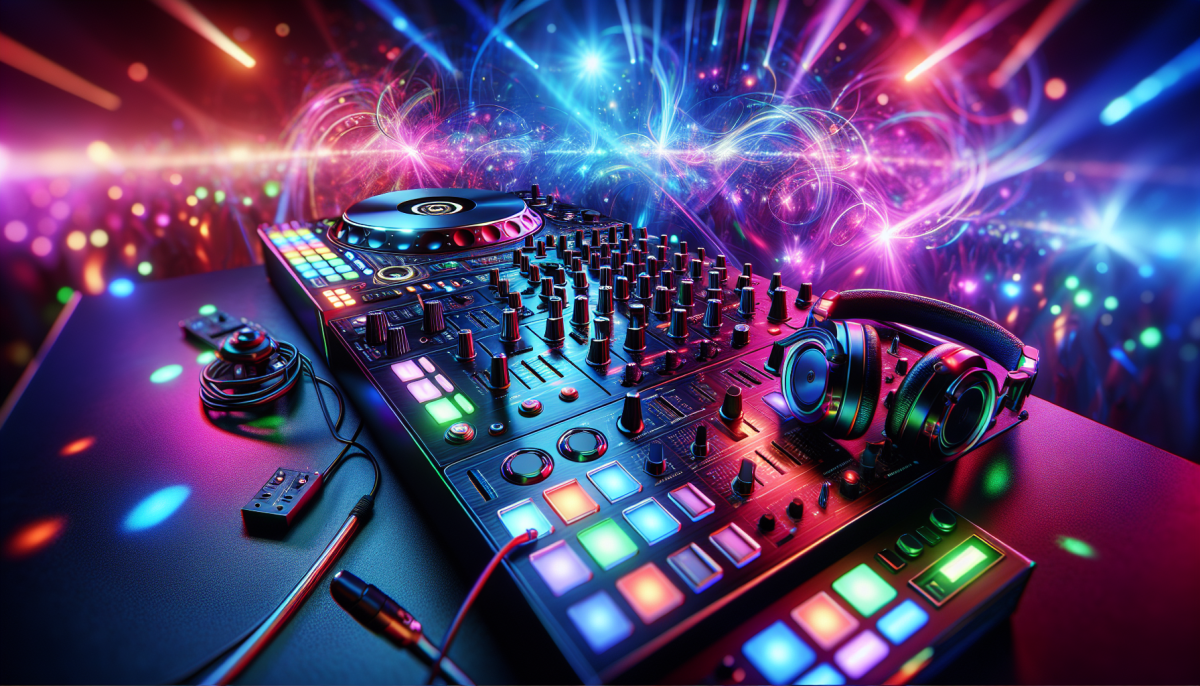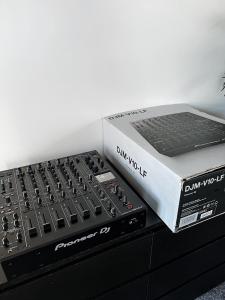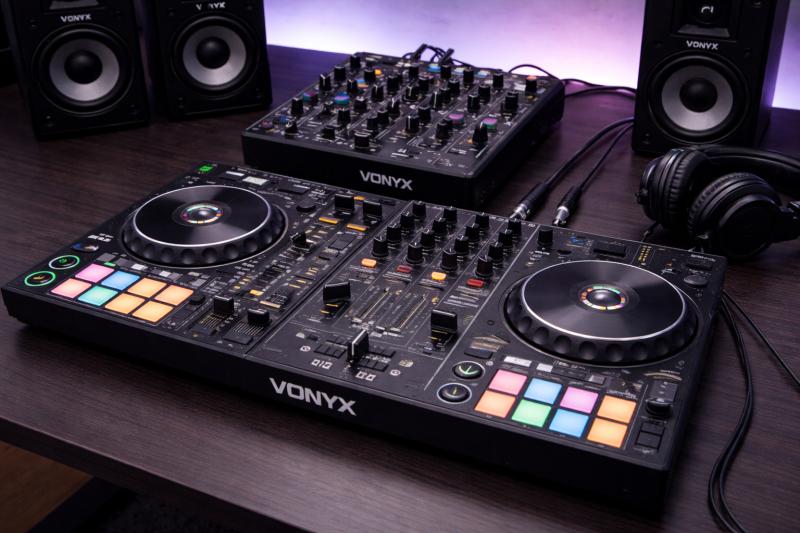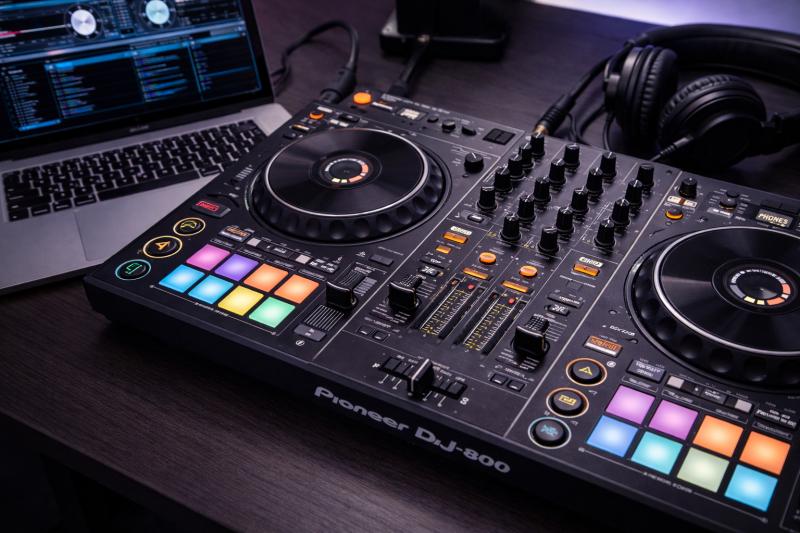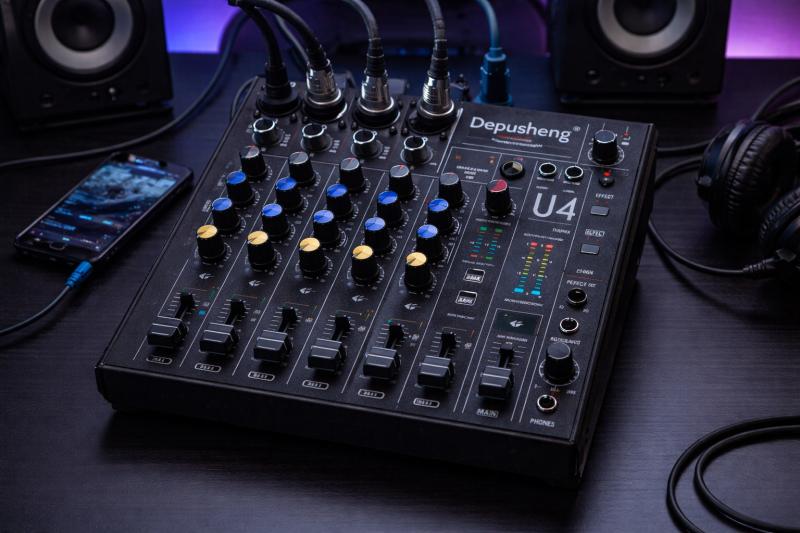The Anatomy of a DJ Mixer: Understanding the Different Components
A DJ mixer is a device that allows DJs to mix and manipulate different audio sources in real-time. To fully understand how a DJ mixer works, it’s important to understand the different components that make up the mixer. Here are some of the most important components of a DJ mixer:
Channels
The channels on a DJ mixer are the inputs where audio sources are plugged in. Typically, a DJ mixer will have two or more channels. Each channel will have its own set of controls for adjusting the volume, EQ, and other effects.
Crossfader
The crossfader is a sliding control that is used to blend the audio from two different channels. DJs use the crossfader to smoothly transition from one track to another without having to interrupt the music.
Equalizers
The equalizers on a DJ mixer allow DJs to adjust the balance between different frequency ranges. This is important because different tracks will have different EQ balances, and DJs need to be able to adjust the EQ on the fly to match the tracks they’re mixing.
Effects
DJ mixers often come with built-in effects such as reverb, delay, and flanger. These effects can be used to add depth and texture to the music. Some DJ mixers also have send and return channels that allow external effects processors to be added to the mix.
Cueing
The cueing system on a DJ mixer allows DJs to listen to tracks in their headphones before they’re played through the speakers. This is important because it allows DJs to match the beats of different tracks and make sure everything is in sync before switching over to the main mix.
By understanding the different components of a DJ mixer, you can start to see how these devices work together to create the seamless and dynamic mixes that DJs are known for.
Mixing Techniques: Tips and Tricks for Getting the Most Out of Your Mixer
Now that you’ve got a handle on the basics of DJ mixers, it's time to take your mixing skills to the next level. Here are some tips and tricks for getting the most out of your mixer:
1. Use EQ to enhance your mix
The EQ section of your mixer is a powerful tool that can help you blend your tracks seamlessly. Use high-pass filters to clean up the low-end of a track, low-pass filters to cut out high frequencies, and mid-range EQ to bring out the best in your tracks. Don't be afraid to experiment with different EQ settings to find the perfect sound for your mix.
2. Use effects to add dimension to your mix
Add effects like reverb, delay, and flanger to give your mix depth and atmosphere. Experiment with different effects and settings to create a unique sound that sets your mix apart. However, be careful not to over-use effects, as too much can make your mix sound muddy or cluttered.
3. Use crossfading to blend your tracks
The crossfader is one of the most important tools for DJ mixing. Use it to blend one track into another seamlessly. Practice using different crossfading techniques to create smooth transitions between tracks.
4. Use gain staging to balance your levels
Gain staging is the process of setting the gain levels for each track in a mix. Make sure each track is at the right level to ensure a balanced mix. Too little gain and the track won’t be heard, too much gain and it will distort. Use the gain knob on your mixer to adjust the levels of each track until you achieve the perfect balance.
5. Use loop and cue functions to create buildups and drops
Loop and cue functions can be used to create buildups and drops in your mix. Use loops to repeat a section of a track to build tension and excitement. Use cue points to jump to specific sections of a track to create sudden drops or changes.
By using these mixing techniques, you can take your DJ sets to the next level and create mixes that stand out from the rest.
Choosing the Right DJ Mixer: A Buying Guide for New and Experienced DJs
Choosing the Right DJ Mixer: A Buying Guide for New and Experienced DJs
DJ mixers are essential tools for every DJ, be it a beginner or a seasoned professional. They play a vital role in enabling DJs to create seamless transitions between tracks, manipulate sounds, and manage sound effects. However, with the wide variety of mixers available in the market, finding the right one can be overwhelming. Here are some factors to consider when purchasing a DJ mixer:
Channels
One of the most critical factors to consider when buying a mixer is the number of channels you need. The number of channels determines the number of sounds you can mix simultaneously. Most DJ mixers have two channels, while others have up to eight channels. If you mainly play tracks from one source, such as a laptop, a two-channel mixer will suffice. However, if you require more channels, such as when you want to connect several players or have a multi-track setup, consider purchasing a mixer with more channels.
Sound Quality
The quality of sound produced by the mixer is another crucial factor to consider. A good DJ mixer should have sound clarity, with minimal distortion or noise. Look for a mixer that has excellent signal processing capabilities to ensure high-quality sound production. Also, consider the frequency response range, which should be wide enough to accommodate different genres of music.
Effects and Features
DJ mixers come with various effects and features to enhance the mixing experience. Some mixers have built-in effects such as delay, reverb, and echo. Others have features such as EQ knobs, filters, faders, and crossfaders. When purchasing a mixer, consider the effects and features that you prefer, depending on your mixing style and the music genres you typically play.
Portability and Durability
Depending on your gigs, you may need to move your mixer from one location to another. Therefore, consider the mixer's portability and durability. A portable mixer should be lightweight and compact to enable ease of transportation. Also, check whether the mixer is built using sturdy, durable materials that can withstand wear and tear from frequent use.
Budget
Finally, consider your budget when purchasing a DJ mixer. Mixers vary in price depending on the features and the quality of sound produced. Consider what features are necessary for your performance and purchase a mixer that is within your budget.
Choosing the right DJ mixer can significantly enhance your performance and take your mixing skills to the next level. With these factors in mind, you'll be able to narrow down your options and choose the right mixer that suits your needs and preferences.
Pioneer DJ DJM-V10 6-Channel Mixer for DJs
Elevate your DJ performance with the Pioneer DJ DJM-V10 6-Channel Mixer for DJs
Product information
$2,899.99
Product Review Score
4.35 out of 5 stars
182 reviews